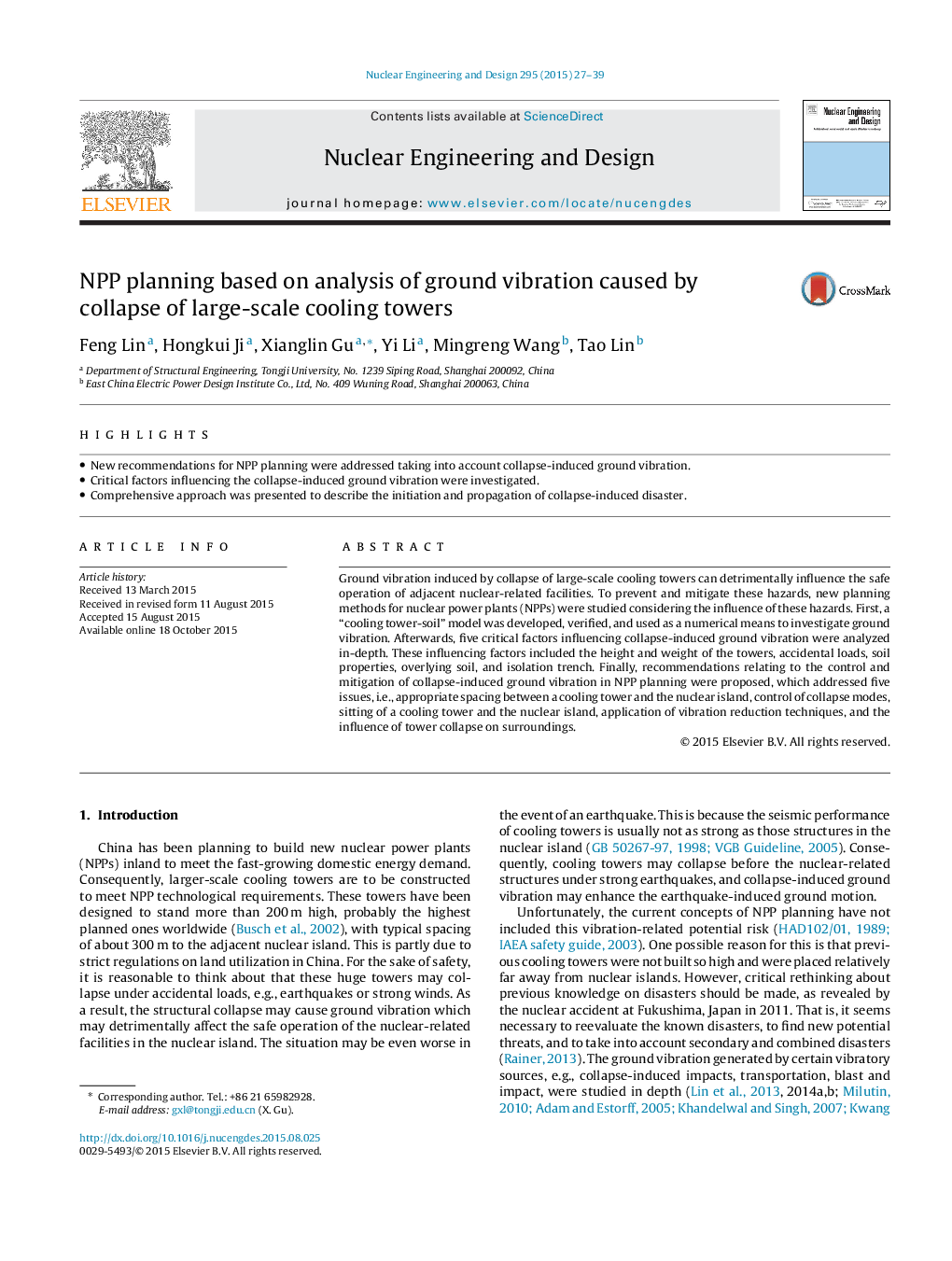| Article ID | Journal | Published Year | Pages | File Type |
|---|---|---|---|---|
| 6760781 | Nuclear Engineering and Design | 2015 | 13 Pages |
Abstract
Ground vibration induced by collapse of large-scale cooling towers can detrimentally influence the safe operation of adjacent nuclear-related facilities. To prevent and mitigate these hazards, new planning methods for nuclear power plants (NPPs) were studied considering the influence of these hazards. First, a “cooling tower-soil” model was developed, verified, and used as a numerical means to investigate ground vibration. Afterwards, five critical factors influencing collapse-induced ground vibration were analyzed in-depth. These influencing factors included the height and weight of the towers, accidental loads, soil properties, overlying soil, and isolation trench. Finally, recommendations relating to the control and mitigation of collapse-induced ground vibration in NPP planning were proposed, which addressed five issues, i.e., appropriate spacing between a cooling tower and the nuclear island, control of collapse modes, sitting of a cooling tower and the nuclear island, application of vibration reduction techniques, and the influence of tower collapse on surroundings.
Related Topics
Physical Sciences and Engineering
Energy
Energy Engineering and Power Technology
Authors
Feng Lin, Hongkui Ji, Xianglin Gu, Yi Li, Mingreng Wang, Tao Lin,
